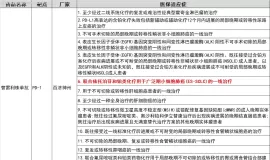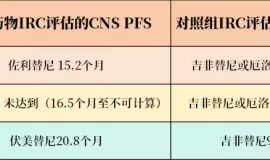жң¬её–жңҖеҗҺз”ұ иҖҒ马 дәҺ 2013-2-22 13:17 зј–иҫ‘
Fighting over molecules
By Steven Syre
Some fights start over the smallest things. This one is about a molecule called WZ4002.
There is no shortage of people and powerful organizations fighting over the molecule, discovered by Boston scientists at the Dana-Farber Cancer Institute; it could be worth a fortune as a new treatment for many lung cancer patients.
Then again, WZ4002 could turn out to be a big nothing. ItвҖҷs too early to tell.
But no one is waiting around to find out, and recent lawsuits offer a rare public glimpse of a fight over medicine and money that usually takes place behind closed doors.
Drug giant Novartis International Pharmaceutical Ltd. is locking horns with the scientists who discovered WZ4002. Those researchers are at odds with the president of the company they formed to represent their commercial interests. Dana-Farber is caught awkwardly in the middle, with important interests of its own at stake.
The conflict is remarkable because the molecule is nowhere close to becoming an approved drug. It has not been the subject of a single clinical trial. ItвҖҷs still a compound in a lab, not a therapy.
John Mirick, a lawyer for researcher Nathanael Gray and three other Dana-Farber scientists behind WZ4002, says development of the molecule has been treading water since the licensing dispute broke out last year.
That would be bad news for patients, the real people at the heart of this story. Jamie Gorenberg has paid close attention to the development of WZ4002 because her mother, Caren Gorenberg, suffers from advanced lung cancer. She recognizes itвҖҷs a long shot but hopes the molecule might help her mother in a clinical trial someday soon.
вҖңI know thatвҖҷs a big if, but we live on ifs,вҖҷвҖҷ says Gorenberg. вҖңThatвҖҷs better than nothing, and IвҖҷm going to grab onto it.вҖҷвҖҷ
Gorenberg learned about WZ4002 by reading an article in the scientific journal Nature in December 2009 that described how the molecule could help patients with non-small cell lung cancer who also have common gene mutations. Those mutations help the cancer resist the leading treatments, and WZ4002 might get around that problem.
The article in Nature also came as news to executives at Novartis, which spends more than $15 million a year on sponsored research at Dana-Farber, according to court papers. The drug company funded some work in GrayвҖҷs lab, and executives soon pressed Dana-Farber for rights to WZ4002. Their view: Novartis owned those commercial rights.
That was a big problem because Dana-Farber gave an option for the rights to Gatekeeper Pharmaceuticals Inc., a company formed by Gray and his colleagues. The cancer institute filed a patent application for WZ4002 but was stuck between the commercial interests of its scientists and a big research sponsor.
Dana-FarberвҖҷs solution: Sue and let US District Judge David Woodlock decide who owns what.
вҖңWe are not seeking any monetary award,вҖҷвҖҷ Dana-Farber said in a statement yesterday. вҖңWe are simply asking the court to determine which of the two parties has the superior rights to the technology.вҖҷвҖҷ
Meanwhile, the scientists who formed Gatekeeper didnвҖҷt see eye to eye with John Chant, whom they hired to run the company and advance the commercial interests of WZ4002.
Chant didnвҖҷt like the companyвҖҷs legal strategy. He made the ambitious argument that GatekeeperвҖҷs founders, who owned 87 percent of the company and constituted its board, were conflicted in the case because they worked at Dana-Farber, among other reasons.
Chant wants to intervene on behalf of Gatekeeper and pursue another legal strategy.
Gray and his colleagues say they are open to a settlement with both Novartis and Dana-Farber. Chant wanted to fight for damages and insisted any settlement must include $750,000 to cover deferred and future compensation for him, according to court papers filed by the scientists.
вҖңThe board concluded Mr. Chant was primarily concerned for his salary and benefits,вҖҷвҖҷ they said in the documents.
Strange fact: Chant is still employed by Gatekeeper.
ChantвҖҷs lawyer did not return a call yesterday.
Now the judge has to figure it all out or push for a settlement. But time matters.
вҖңAll I can say is, move quickly,вҖҷвҖҷ Gorenberg says. вҖңIвҖҷm not trying to blame anyone or point fingers.вҖҷвҖҷ
The molecule in question may save lives, though the odds are long. But no one will figure that out until everyone agrees on who owns WZ4002.
http://www.boston.com/business/h ... ust_wait_for_cures/ |


